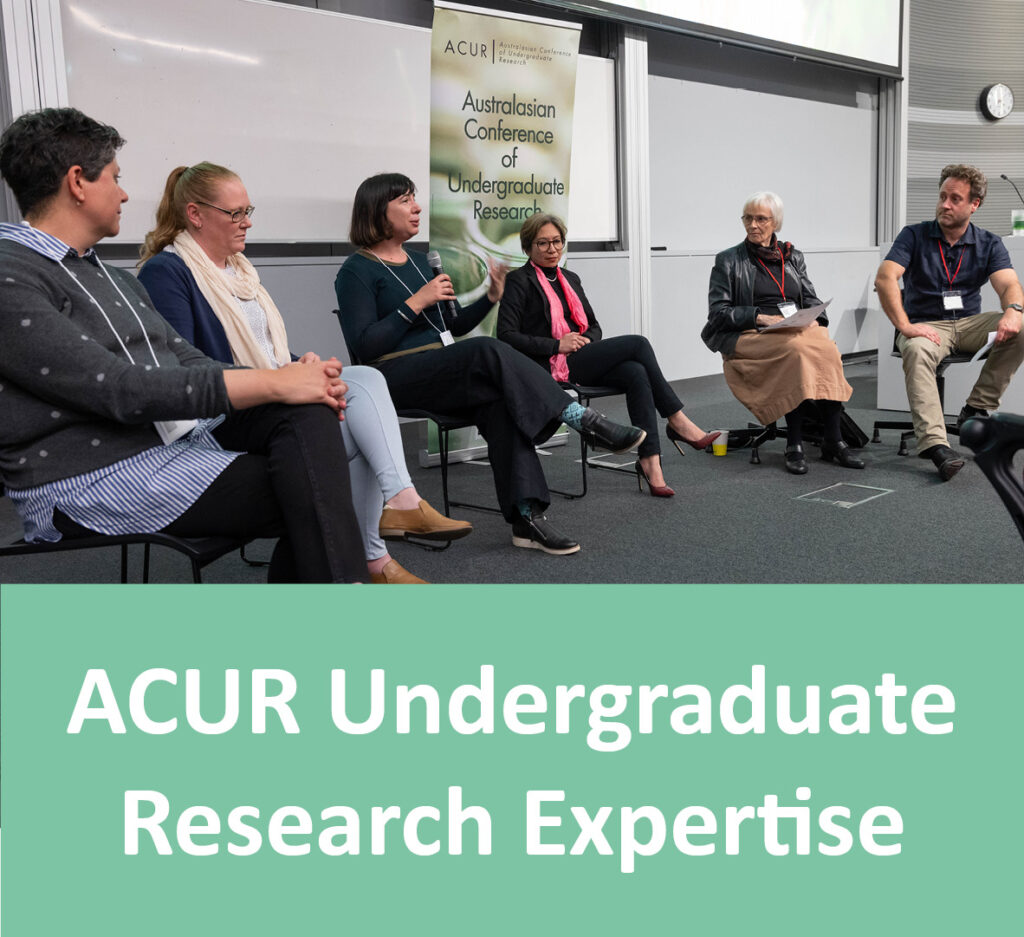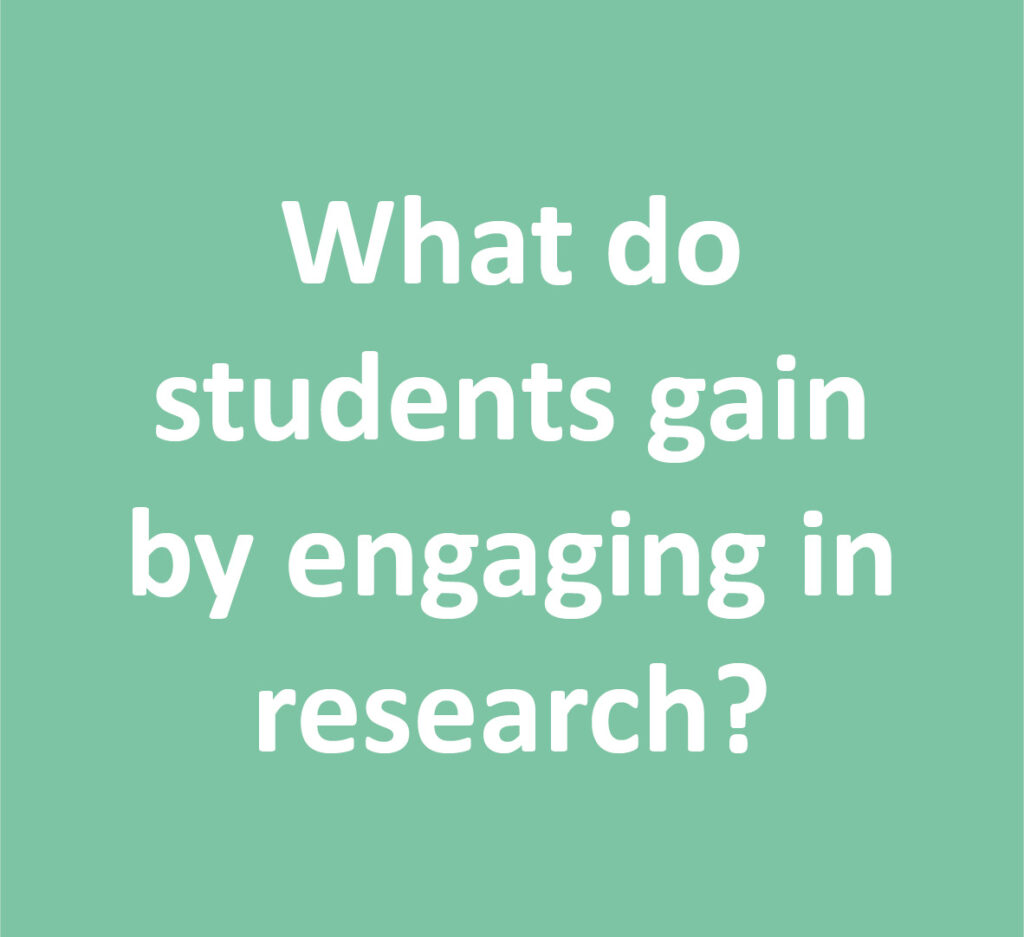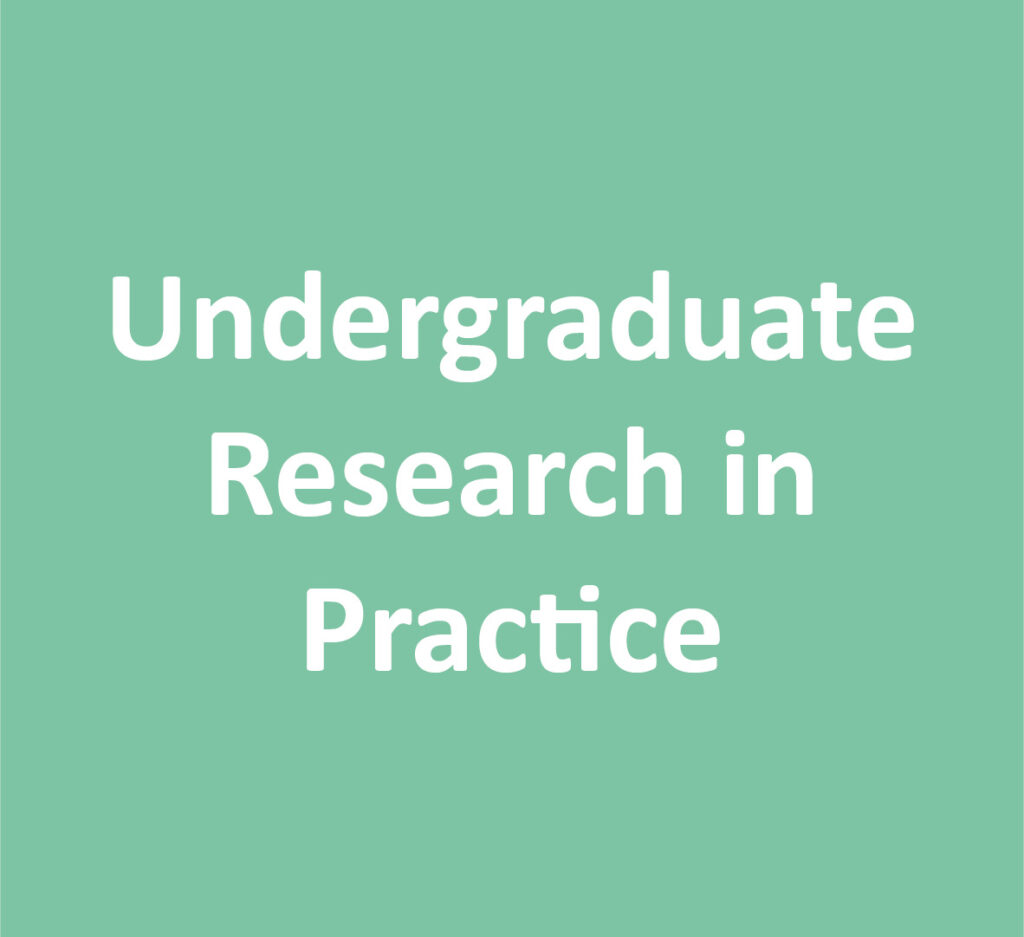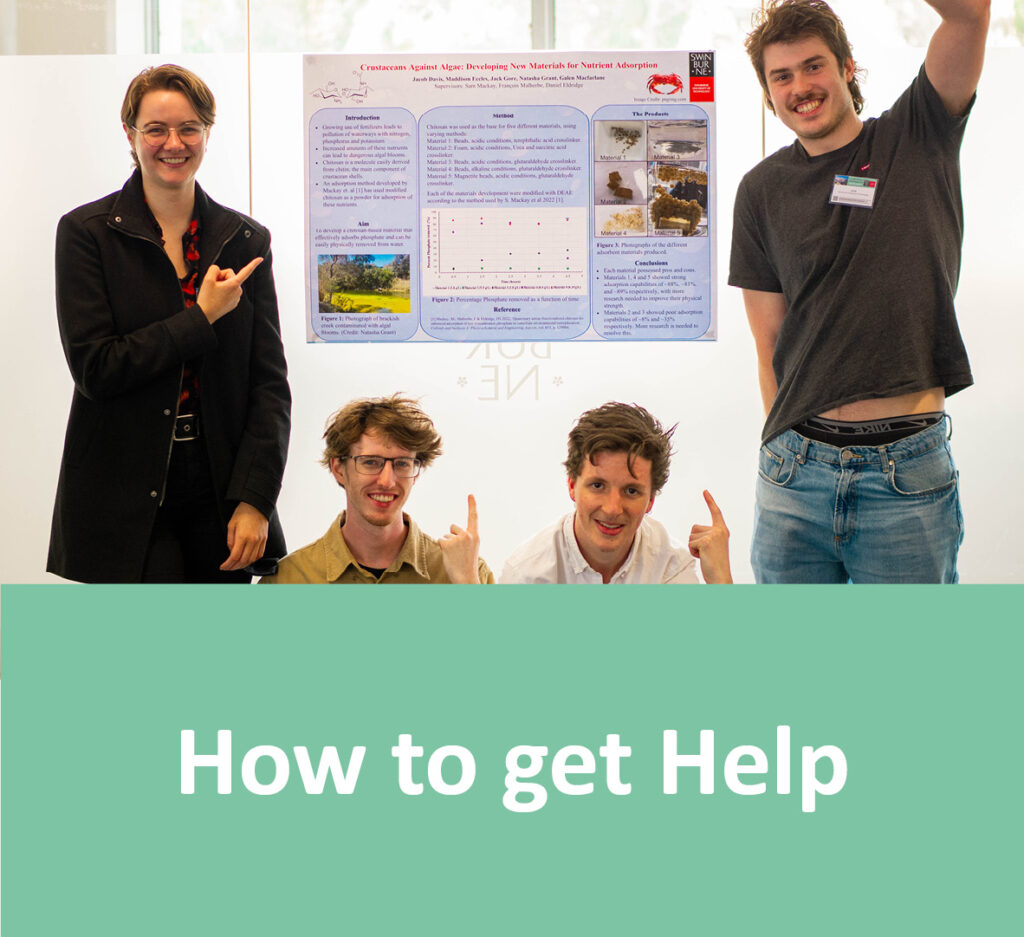
Undergraduate research is a learning process where students actively create disciplinary knowledge and understanding through carrying out inquiries and investigations.
There are many different undergraduate research practices, from carrying out, from conception to publication, guided research or creative inquiry projects, to one-off investigations designed to develop specific disciplinary or multidisciplinary skills and techniques. Undergraduate research practices vary according to the level of the students, the technical requirements of different disciplines, the particular strategic intents of universities, and local curriculum requirements and constraints.
.
.
Why is undergraduate research important?
Students are the world’s future problem solvers
Fundamental to engaging undergraduates in research are contemporary understandings of how higher education must transform to meet the needs of an uncertain world. Today’s students will have important work to do in the future in addressing the humanitarian and environmental challenges of the twenty-first century and beyond. Research experiences in the undergraduate years are essential in preparing students for their future working lives in this context.
Undergraduate research requires students to address key contemporary issues: how knowledge develops, how truth is established, and the importance of values and relationships within the scientific endeavour. As such it has the capacity to transform students’ lives and to teach them how to live and work in a complex society characterised by ambiguity and unpredictability.
.
.
What do Students Gain?
More than twenty years of research studies across different nations and cultures show that:
-
Undergraduate research is effective in developing scientific competence, i.e. “students’ conceptions and practice of scientific thinking”.
-
There is a clear positive effect on academic achievement: grades improve among students with research experience.
-
Undergraduate research strengthens student retention.
-
Undergraduate research supports inclusion and diversity.
-
There are positive effects for marginalized groups. It particularly benefits historically underrepresented students, underserved students, and/or minority students.
-
Undergraduate research benefits career prospects, especially if research, or dealing with research results, is part of later professional practice (Meig et al., 2023).
Other studies have shown that students who actively engage in research based learning (RBL) during their undergraduate years develop a raft of transferable skills that are not readily acquired through coursework or work placements alone. These include:
-
Advanced skills in project management, collaboration, problem solving, critical thinking, data analysis and interpretation.
-
Written and oral communication – core competencies that are highly attractive to most (if not all) employers.
-
Ability to adopt new ideas, processes and technologies, increase an employer’s “absorptive capacity” (as noted on p84 of the Final Report).
-
Cultivate a next-generation workforce that better meets the needs of employers and is well positioned to drive the future knowledge economy.
-
Develop personal resourcefulness and resilience and knowledge of oneself.
-
Skills, attitudes and attributes that students need in order to work successfully in contemporary workplaces following graduation (Donald et al., 2019).
.
Do other countries involve students in research?
The Cambridge Handbook of Undergraduate Research (Meig et al., 2023), lists twenty-five countries with significant undergraduate research engagement. Here we list a few where there is Federal Government funding for its development and implementation.
Germany: Forschendes Lernen came into its own following the need to rethink degree programs as a consequence of the European Bologna Process. Money was available for innovation including inquiry-based learning (Riewerts & Wimmelmann, 2022, pp.599-606).
China: “Cultivation of undergraduates’ innovation ability” – has been a crucial government agenda, leading to attempts to implement undergraduate research nationally through the National University Student Innovation Programme (NUSIP) commencing in 2006, and the National College Student Innovation and Entrepreneurship Training Programme (NCSIETP). The number of students and institutions participating is staggering. By 2019, a million undergraduates throughout China had participated in the programme. (Hongbiao & Lian, 2022, pp.535-542).
Brazil: The Constitution closely links teaching, research and extension in undergraduate research. Therefore there is federal funding for undergraduate fellowships (Voerkel et al., 2022, pp.473-479).
UK: High level of institutional autonomy, but final year Honours (research) project is normal practice, while UGR in earlier years is limited (Kneale, 2022, pp. 649-658).
..
What disciplines are involved?
Undergraduates engage in research in all disciplines and are well represented in multi and trans disciplinary research. In Australasia, every ACUR conference sees a wide spectrum of research from multiple disciplinary areas. Collectively, a vast array of academic research interests is represented. See page 6 of Issue 25 in the ACUR Newsletter to find out more.
..
Can Undergraduates make scientific discoveries?
A quick internet search will result in a list of many scientific discoveries by undergraduate researchers. Below we list notable discoveries by Undergraduates at Australasian Universities that have been brought to our attention. Please tell us of any others you know about.
2024. A University of Sydney undergraduate researcher made a significant discovery when she uncovered a ‘shocking’ problem with global cancer research. Dr Byrne, the supervisor commented. “Students who just have no preconceptions about what’s out there can actually make very powerful observations. … Possibly hundreds of thousands of people have seen these identifiers, and no one has thought to check them – until we did.” Reference: Phantom cell lines_ Sydney student uncovers problem with global cancer research. Angus Dalton | Sydney Morning Herald | June 19, 2024. Click here to see article (then type phantom in search bar).
2011. A Monash student made a breakthrough in the field of astrophysics, discovering what has until now been described as the Universe’s ‘missing mass’. Amelia Fraser-McKelvie, working within a team at the Monash School of Physics, conducted a targeted X-ray search for the matter and within just three months found it – or at least some of it. What makes the discovery all the more noteworthy is the fact that Ms Fraser-McKelvie is not a career researcher, or even studying at a postgraduate level. She is a 22-year-old undergraduate Aerospace Engineering/Science student who pinpointed the missing mass during a summer scholarship, working with two astrophysicists at the School of Physics, Dr Kevin Pimbblet and Dr Jasmina Lazendic-Galloway. Dr Pimbblet, lecturer in the School of Physics put the magnitude of the discovery in context by explaining that scientists had been hunting for the Universe’s missing mass for decades. Click here for more information
.
Teaching or research








